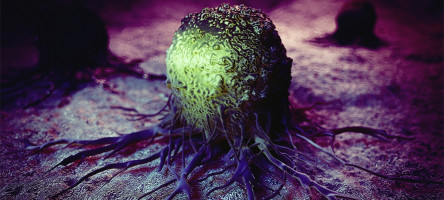
Cancer, as a life-threatening disease, has been a major research focus.
Understanding the mechanisms of tumour progression has been a significant challenge.
In recent years, increasing evidence has indicated a correlation between the mechanical properties of tumour cells and tumour progression and malignancy.
However, the relationship between tumour cell mechanics and malignancy remains incompletely understood.
To address this knowledge gap, Dr. Youhua TAN’s team from The Hong Kong Polytechnic University discovered the regulatory roles of tumour cell mechanics in malignancy and unveiled the underlying mechanisms.
Dr. Tan’s study demonstrated that moderate softening of tumour cells through targeting the actin cytoskeleton and myosin activity enhanced their self-renewal and tumour formation abilities, while cell stiffening suppressed these abilities across various types of cancer.
Mechanistically, softening/stiffening of the actin cytoskeleton weakened/strengthened the interaction between the tumour suppressor adenomatous polyposis coli (APC) and β-catenin, resulting in nuclear/cytoplasmic localisation of β-catenin.
Nuclear-localized β-catenin bond to the promoter region of the Oct4 gene, promoting key gene transcription and maintaining the self-renewal ability of tumour cells.
Conversely, cytoplasmic retention of β-catenin led to its degradation and subsequent inactivation of Wnt/β-catenin signalling, reducing the stemness of tumour cells.
Furthermore, cellular mechanics regulated the interconversion between tumour stem cells and non-tumour stem cells, a process dependent on Wnt signalling.
In summary, this study demonstrated that actomyosin-mediated cellular mechanics drove the self-renewal and tumour-forming abilities of tumour cells through the cytoskeleton/APC/Wnt/β-catenin/Oct4 signaling pathway.
These findings have been clinically validated and significantly correlate with the survival of cancer patients.
The discoveries from this study provide a new perspective for a deep understanding of tumour progression and offer important clues for the development of new therapeutic approaches that target tumour cell mechanics.
This study demonstrates, for the first time, that tumour cell softening during progression is not merely a consequence of tumour evolution, but also a key driving force for tumour development.
This groundbreaking research opens up new avenues for the development of new mechanomedicines for cancer prevention and treatment.
Source: Research
The World Cancer Declaration recognises that to make major reductions in premature deaths, innovative education and training opportunities for healthcare workers in all disciplines of cancer control need to improve significantly.
ecancer plays a critical part in improving access to education for medical professionals.
Every day we help doctors, nurses, patients and their advocates to further their knowledge and improve the quality of care. Please make a donation to support our ongoing work.
Thank you for your support.